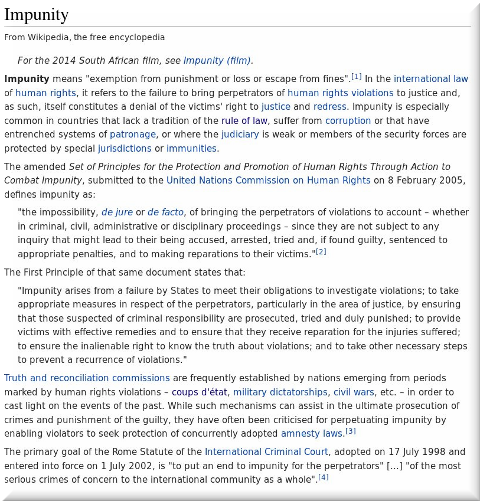
 Reference: Impunity
Reference: Impunity
THE EPO is a politically-connected or politically-infiltrated institution. No wonder it's so abusive. We are going to provide evidence of it in the coming week. The politician/President Battistelli has a 0% approval rating at the EPO, much like politicians (they too have low degrees of public trust). The Board (28) and the Council, who are complicit and largely supportive of Battistelli, are also politically-connected and despite admitting there is "a crisis" at the EPO they do nothing to address it. The Board (28), for example, shows no intent to kick Benoît Battistelli out any time soon. Combine all this with immunity from the outside and what we have is a rogue entity totally above the law, including international law. See our prior (first) post about it. It's unthinkable that such a thing can be tolerated in the so-called 'developed' world.
Obviously, it should have been "and a decision in favour of SUEPO in January look improbable."
Sorry for that.
Well, IMHO the AG forgets that the immunity of the EPO is not absolute according to the PPI. It is limited to "within the scope of its official activities" (Art 3 PPI). Seeing the the EPO is continuoisly violating the PPI (by refusing any negotiations under Art. 20(2)PPI), where does the "scope" of official duties end? Art 3(4) gives a hint: (4) The official activities of the Organisation shall, for the purposes of this Protocol, be such as are strictly necessary for its administrative and technical operation, as set out in the Convention. Anything outside of the convention is not falling under immunities... And anything in implementing regulations, or other secondary law, is too easily amended, and can therefore not be protected by the claimed immunity grom everything.
There larger issue working against SUEPO is the requirement of the Office not being allowed to be put under restraints in one site, but not in the others. And the Dutch courts jurisdiction does not extend to Munich and Berlin and Bruxelles and Vienna...... Immunity might not be given, but a decision against the EPO may be refused under this requirement.